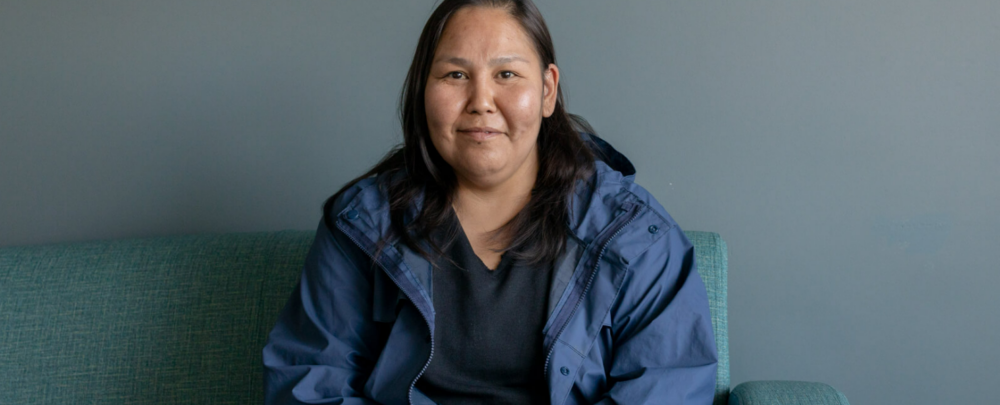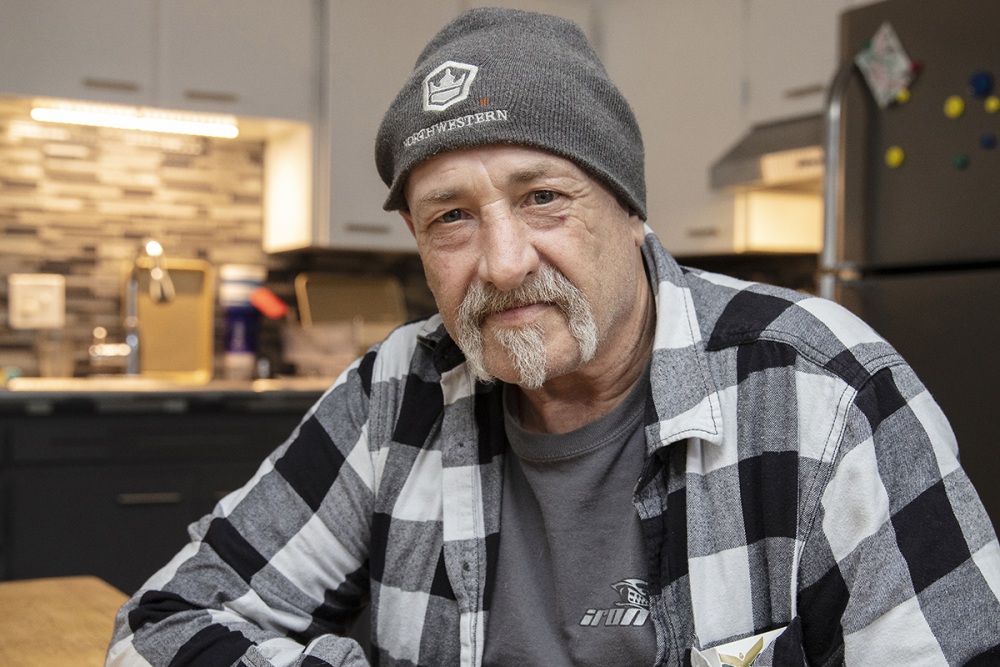This blog was originally published by United Way of Anchorage.
Home for Good is a $12.75 million Pay for Success project designed to help 150 residents of Anchorage, Alaska experiencing persistent homelessness access permanent housing and supportive services. The Municipality of Anchorage, United Way of Anchorage, Social Finance, and more than 20 other government, nonprofit, and philanthropic organizations are collaborating on this three-year initiative, which launched in October 2020.
For the first time in a long while, Alice is thinking about her future. After more than ten years of living outside and in shelters, she now has her own apartment thanks to Home for Good. Having a place to stay means everything to her. A place away from the daily urgent considerations of safety, away from abusive relationships and strangers, away from drugs and alcohol.
Getting an apartment through Home for Good was an important starting point for Alice. She says the safety has been key to her recovery. Once safe, “then I can think about the future, what I need to do for myself.” And she is doing a lot for herself. After working with her case management team and receiving wraparound support from Southcentral Foundation for just a year, she’s headed back to school for medical coding so that she can work in the healthcare sector again.
Her case manager emphasizes the success is all hers. “She did all the work herself, every single step of the way.” For Alice, she was able to put in that hard work because of the security and support that she now has. Through Home for Good, she is not only safe with her own apartment and a door that she can lock—she is supported by her case manager.
As part of the Home for Good program, participants are paired with case managers who work to connect them with mental health and substance abuse treatment, services critical to recovery for many in the program who have suffered years of trauma while they were homeless.
These case managers also help with many day-to-day tasks. After years of homelessness, Alice needed to navigate hours of complicated bureaucracy so she could get a new birth certificate, social security card, ID, and other documents so that she could enroll in educational programs and other services.
For Alice, the most important initial support was just a friendly face and encouraging words. She had been homeless since 2009, when she lost her home after her mother passed away. After years of struggling with homelessness, substance abuse, and abusive relationships, she was used to being ignored. For her, the biggest surprise about the program was that “there are people out there willing to help.”
The openness, support, and positive attitude of her case manager was critical for Alice at the beginning of their relationship. For her, “it was not only the place to live—it was also the mental side of it, that I needed to hear positive things. I didn’t know I had a real problem until I got sober and noticed that there were other things going on in my life that I needed to take care of that were long-lasting.”
So far for Alice she has taken care of some of those long-lasting things. She says that she’s hoping to see her children again soon, now that they know that she’s not having strangers around and there is no violence, drugs, or alcohol. She’s discovered things that she enjoys doing to relax, like crocheting or painting.
So now, with her own apartment and the wrap-around support that she needed, Alice is back in school, and on a path of sustained success. This journey has inspired her to want to help others living like she used to. When she was “out there” she thought about how nice it would be to connect with someone who really understood her situation. She’s looking forward to volunteering in the community to give back and help other people get the help that she’s been given.
Long-term success is key for Home for Good. Funded by private philanthropy at first, the program has since started billing the Municipality of Anchorage for successful outcomes through its innovative new funding model called ‘pay for success.’ As goals are met, public dollars pay for those achievements, attaching unique fiscal accountability to public policy expenditures.
As Home for Good works to reach more of our most vulnerable neighbors in Anchorage, Alice is proud of the success that she’s worked to achieve and wants others to know there are people willing to help. “I’m just happy for the program and that everyone deserves and needs to know that there’s help and that they deserve a chance and somebody to believe in them.”
Photo courtesy of United Way of Anchorage.



